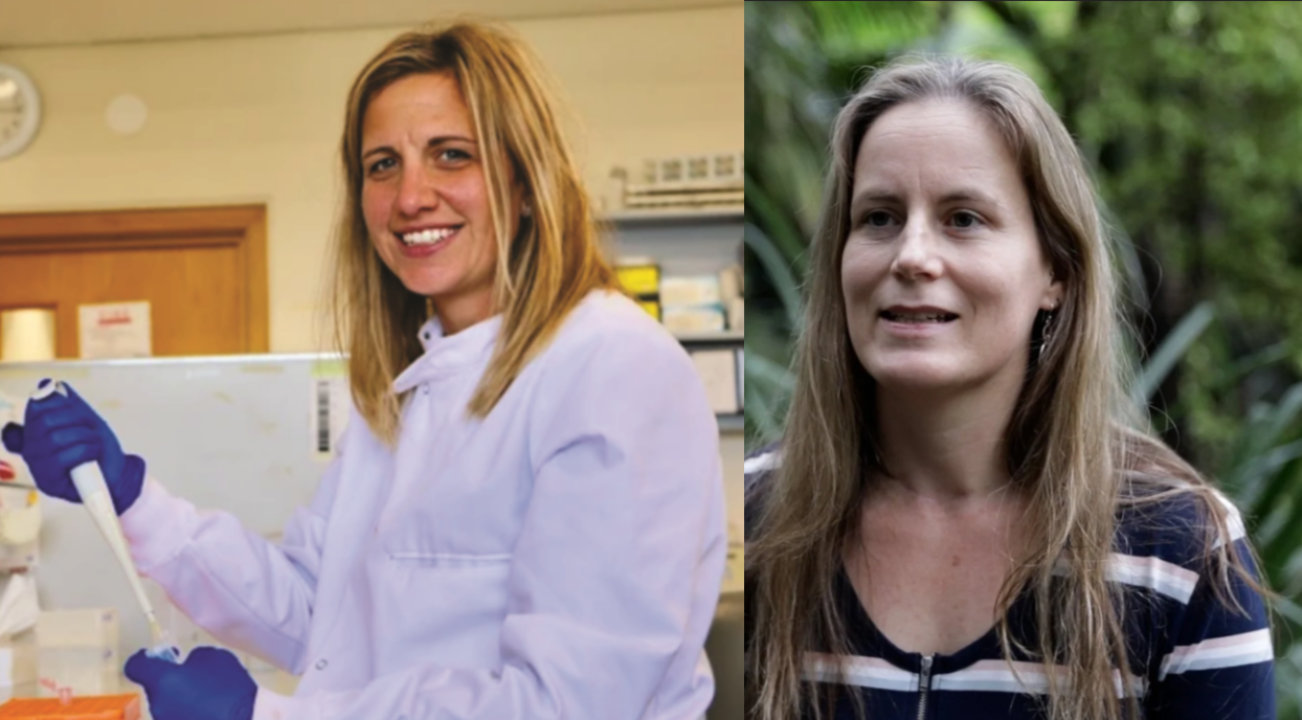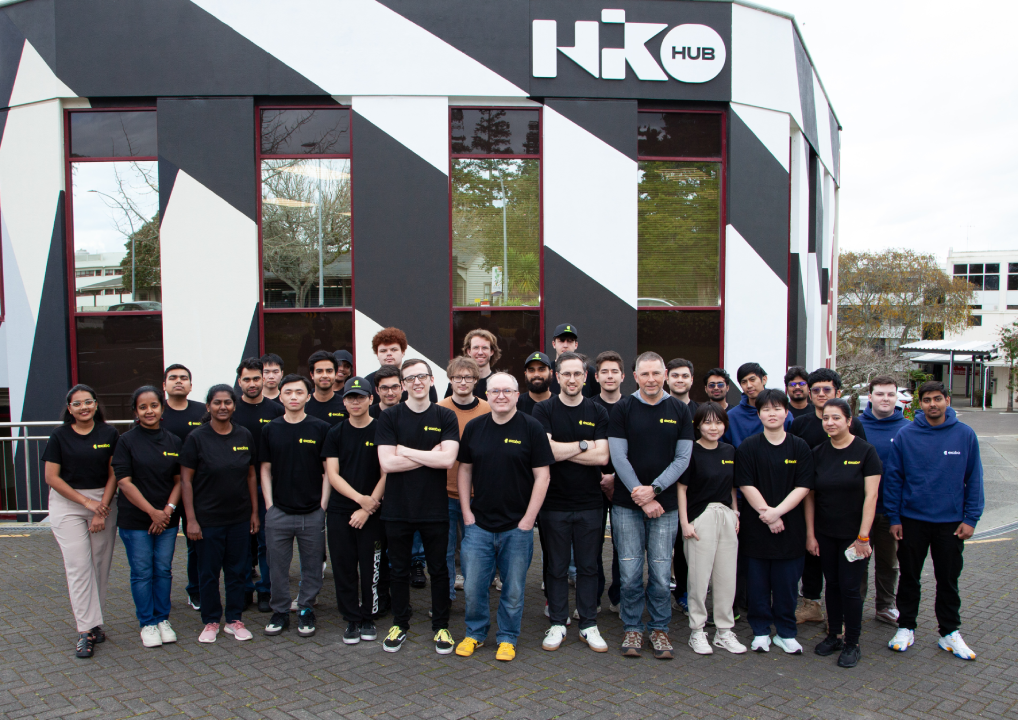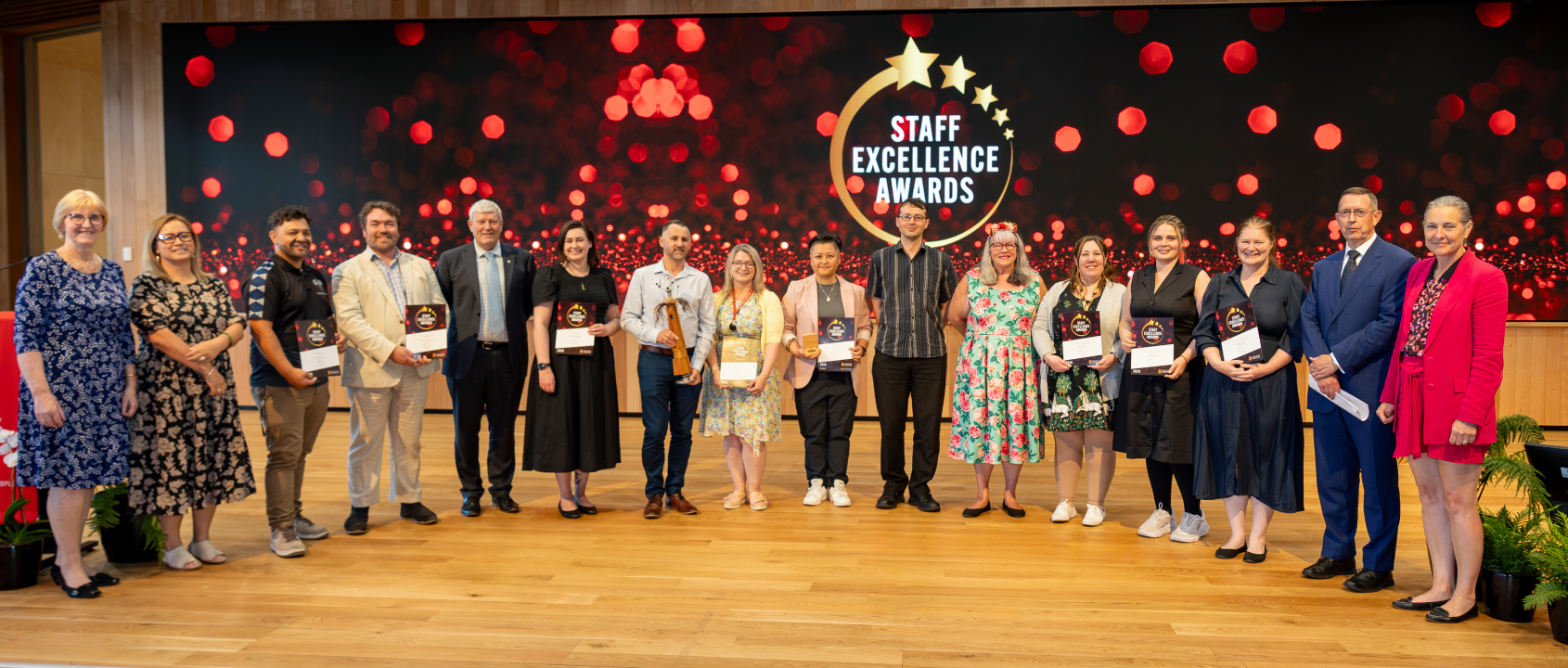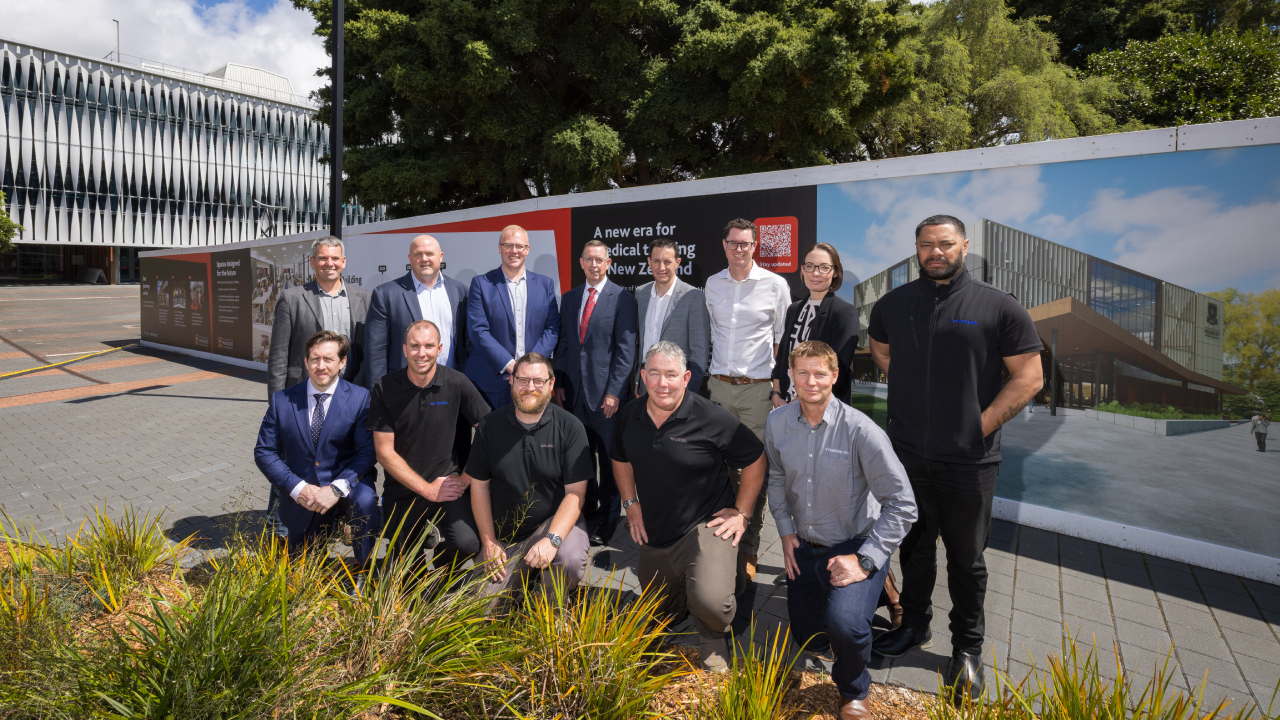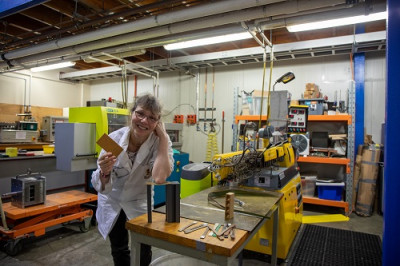
Professor Kim Pickering demonstrates that bio-composite materials using natural fibres can be very strong, very lightweight and rigid.
As housing construction costs skyrocket and building materials are in short supply, University of Waikato researchers are developing new building products from waste, saving both money and the environment.
The research is being conducted as part of Āmiomio Aotearoa, an $11 million project covering science, engineering, business and policy, funded by the Ministry of Business Innovation and Employment (MBIE), and led by the University, to develop New Zealand’s circular economy.
Professor Kim Pickering and her team are focused on developing new materials for the building and packaging industries. Using building waste they have developed structural timber alternatives, cladding, fencing and decking.
Using a process to chip the waste they have remoulded it into the new products using natural fibres including flax and hemp to reinforce composites and mussel shells, a waste product of the aquaculture industry, as a fire retardant and stabiliser in the process.
Ministry for the Environment figures estimate households send more than 3 million tonnes of construction and demolition to landfills every year while construction industry waste accounts for up to 50 percent of New Zealand’s waste.
The building and construction industry is also estimated to produce about 20 percent of carbon emissions through the energy and materials currently used in building.
Professor Pickering said they were at a stage where they were ready to create prototypes for the building industry to test, and they had held an initial workshop with industry representatives including Fletcher Building, BRANZ, Tetra Pak, WSP, Xtreme Zero Waste, Tainui Group Holdings, Kāinga Ora and the Sustainable Business Network (SBN).
The workshop was to start exploring what the companies understood about circularity, what products they could use and what barriers exist for them in adopting circularity.
She said many businesses thought a circular economy was recycling but New Zealand needed to be much bolder than that.
“At the moment we are using building materials that are coming to the end of their life and creating new products out of them, but in the future, we want the industry to move away from the concept of waste and to a place where every product is designed with the intention it can be reused or at the very least recycled,” says Professor Pickering.
Professor Pickering says New Zealand is already importing many “cheap and cheerful” relatives to the products they are designing, but a major barrier for the new materials is current building standards which assign specific materials for use.
“At the moment that closes off many of the alternative materials we have available and are developing. The way standards are written are something we will need to address in the future if we want to transition New Zealand to a circular economy and it is something being looked at by the policy arm of Āmiomio Aotearoa,” said Professor Pickering.
The Government has identified a circular economy as a key driver in creating a low-emission climate resilient future and Āmiomio Aotearoa is focused on combining expertise across business, science, and engineering to define what a circular economy is for New Zealand using the principles of mātauranga Māori, identifying the barriers for businesses and designing new products.
“New Zealand must shift from our ‘take-make-waste’, linear economy to a place where waste, pollution and greenhouse gases are designed out of our industries, materials are kept in circulation and our natural systems are regenerated,” says Professor Pickering.
Āmiomio Aotearoa involves researchers from across disciplines at the University of Waikato, University of Canterbury, Victoria University of Wellington, Massey University, University of Otago, University of Auckland, SCION, Manaaki Whenua Landcare Research and BRANZ Ltd.
